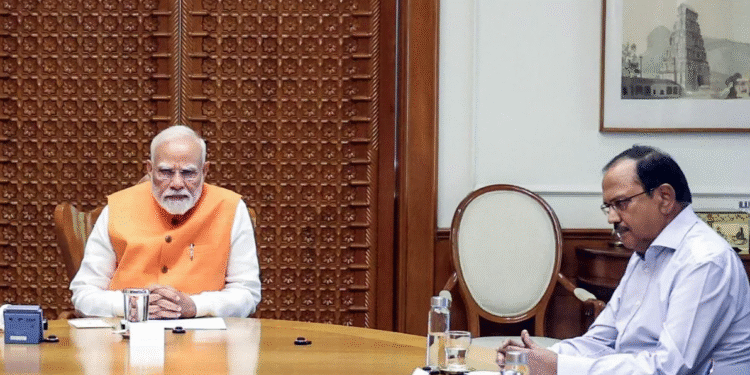In the wake of escalating tensions between India and Pakistan following Operation Sindoor, prominent global security analyst Michael Rubin has suggested that Prime Minister Narendra Modi consider adopting a counter-terrorism strategy similar to that employed by Israel under former Prime Minister Golda Meir. Speaking to NDTV, Rubin emphasized that while India continues its precision strikes against terror infrastructure in Pakistan and Pakistan-Occupied Kashmir, a long-term strategy akin to Israel’s Operation Bayonet could prove effective.
Operation Bayonet, also known as Operation Wrath of God, was initiated by Israel after the 1972 Munich Olympic massacre, during which members of the Palestinian terror group Black September killed eleven Israeli athletes. Over the course of seven years, Mossad carried out covert missions worldwide to eliminate those responsible for the attack. “Israel quietly, over subsequent years, went out anywhere in the world to eliminate the terrorists who were responsible for that massacre. It took them over seven years, but they were relentless in their pursuit to hunt down the terrorists and kill them,” Rubin stated.
He further drew parallels between the Munich massacre and the recent Pahalgam terror attack in Jammu and Kashmir, which left 26 civilians dead. The attack was carried out by The Resistance Front, a proxy group of the Pakistan-based Lashkar-e-Taiba. The terrorists targeted civilians based on their religious identity, demanding proof of allegiance to Islam before executing them in front of their families.
Prime Minister Modi’s statements following the Pahalgam attack echoed those of Golda Meir, as he vowed to bring the perpetrators to justice. “Let me tell the world that India will go to the ends of the Earth to hunt down terrorists and their backers and punish them beyond their imagination,” Modi declared.
Rubin highlighted that while military action is a necessary immediate response, a long-term counter-terrorism strategy is essential to effectively combat terrorism originating from Pakistan. He emphasized that in the aftermath of major attacks, global diplomatic efforts often overshadow military operations, allowing terror networks time to regroup. “While diplomats scramble for quiet, the terrorists regroup to strategize — and then we have another cycle of terrorism,” he noted, referring to Israel’s experience in the decades following the Munich massacre.
Rubin praised India for its measured and calibrated response in Operation Sindoor, describing it as “deliberate and precise.” He stated, “India is playing a very careful game. While I’ve been critical of the time that elapsed between the Pahalgam attack and Operation Sindoor, the fact of the matter is that India is acting very deliberately. Pakistan, on the other hand, appears to be flailing.”
Rubin further criticized Pakistan for its continued support of terror networks operating from its soil while simultaneously denying any direct involvement in terrorist attacks against India. He said, “If Pakistan truly wants to maintain the fiction that it is not a terror sponsor, it needs to stand down right now, close the terror camps, and extradite every terrorist within its borders, even those in military uniforms.”
The security analyst concluded by urging India to remain vigilant and proactive, suggesting that a comprehensive and long-term strategy is crucial to dismantling the terror infrastructure in Pakistan effectively.
Also Read : Operation Sindoor: Key Terrorists Eliminated, Pakistan Holds Funeral Amid Tensions















 Categories
Categories









